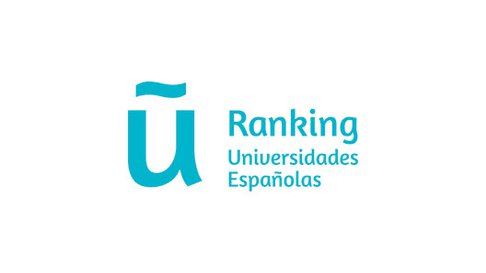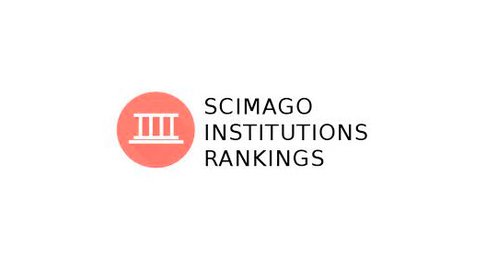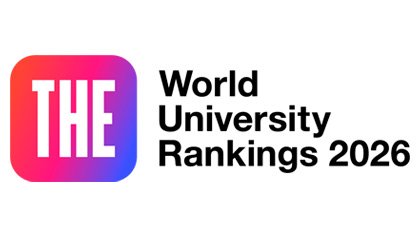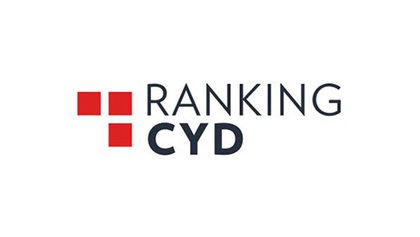-50% Discount on place reservation for 26/27 intake until February 28th!
Psychology Degree
The Psychology Degree at Universidad Europea in Madrid is aimed at providing students with the communication and social skills to work as a psychologist in a number of settings including in education, healthcare, law and forensics, and sports. The degree in psychology, a four-year programme with a total of 240 ECTS, has an eminently practical approach, and you will complete more than 600 hours of internships and work placements throughout the course of the programme.
If you choose to study psychology in Spain in English, at Universidad Europea in Madrid, you will have access to world class facilities including our Specialized Psychological Intervention Service (SIPE) and simulated hospital.
Official degree issued by Universidad Europea de Madrid
| Campus-based | Villaviciosa de Odón | 4 years, 240 ECTS | Start: 14 sep. 2026 | School of Biomedical and Health Sciences - Madrid |
Accreditations and recommendations
Study plan
Study plan structure
Programa de estudios
PRIMER CURSO
| Materia | ECTS | Tipo | Idioma de impartición |
|---|---|---|---|
| Sensory Perception and Attention | 6 | BÁSICA | Inglés |
| Human Anatomy | 6 | BÁSICA | Inglés |
| Behavioural Biology | 6 | BÁSICA | Inglés |
| History of Psychology and Fields of Activity | 6 | OBLIGATORIA | Inglés |
| Social Psychology | 6 | BÁSICA | Inglés |
| Physiology | 6 | BÁSICA | Inglés |
| Psychological Assessment | 6 | BÁSICA | Inglés |
| Rotatory Internships | 6 | OBLIGATORIA | Inglés |
| Memory and Learning Processes | 6 | BÁSICA | Inglés |
| Applied Statistics in Psychology | 6 | BÁSICA | Inglés |
SEGUNDO CURSO
| Materia | ECTS | Tipo | Idioma de impartición |
|---|---|---|---|
| Motivation and Emotion | 6 | BÁSICA | Inglés |
| Psychodiagnostics | 6 | BÁSICA | Inglés |
| Research Methods in Psychology | 6 | BÁSICA | Inglés |
| Psychopathology | 6 | BÁSICA | Inglés |
| Intervention Techniques in Psychology | 6 | BÁSICA | Inglés |
| Thought and Language | 6 | BÁSICA | Inglés |
| Developmental Psychology | 6 | BÁSICA | Inglés |
| Clinical Internships | 12 | OBLIGATORIA | Español |
| Modern Languages | 6 | OBLIGATORIA | Español |
TERCER CURSO
| Materia | ECTS | Tipo | Idioma de impartición |
|---|---|---|---|
| Leadership Skills | 6 | OBLIGATORIA | Inglés |
| Life Span Psychology | 6 | OBLIGATORIA | Inglés |
| Psychometrics | 6 | OBLIGATORIA | Inglés |
| Communication Skills | 6 | OBLIGATORIA | Inglés |
| Practicum I | 12 | PRÁCTICAS | Español |
| Neuropsychology | 6 | OPTATIVA | Inglés |
| Advanced Psychopathology | 6 | OPTATIVA | Inglés |
| Health Psychology | 6 | OPTATIVA | Inglés |
| Therapeutic Skills | 6 | OPTATIVA | Inglés |
CUARTO CURSO
| Materia | ECTS | Tipo | Idioma de impartición |
|---|---|---|---|
| Personality Psychology and Intelligence | 6 | OBLIGATORIA | Inglés |
| Ethical Values | 6 | OBLIGATORIA | Inglés |
| Practicum II | 12 | PRÁCTICAS | Español |
| Final Dissertation | 6 | TFG | Inglés |
| Psychopharmacology | 6 | OPTATIVA | Inglés |
| University Activities | 6 | OPTATIVA | Español |
| Psychogeriatrics | 6 | OPTATIVA | Inglés |
| Psychological Treatment in Adults | 6 | OPTATIVA | Inglés |
| Psychological Treatment in Childhood and Adolescence | 6 | OPTATIVA | Inglés |
Programme implementation calendar
2014/2015.
Places for new intakes
200.
Internships
External internship rules
Internships are a key component of your training. Acquiring experience after what you have learnt in your degree is the best way to enter the employment market. There are two types of internships: curricular—which are included in your study plan—and extracurricular—which you can do on a voluntary basis.
In order to complete curricular internships in companies, you will need to have 50% of the credits approved and registered before starting your internship. These internships are monitored by the company and the internship coordinator, and interim and final reports are prepared for evaluation.
If you want to take your work experience to the next level before finishing your university education, you can pursue an extracurricular internship. You can do them in any academic year, but keep in mind that internships are a formative complement to your studies; therefore, the more knowledge you have acquired throughout your studies, the more you will benefit from the internship experience.
Collaborating institutions
In addition to theoretical training and simulation practice, you will receive practical clinical training from the first academic year in prestigious institutions, including:
- Psicólogos Sin Fronteras
- Colegio de Psicoanálisis de Madrid
- AFA – Asociación de Familiares y Amigos de Enfermos de Alzheimer
- AFAEMO – Asociación de Familiares y Amigos de Enfermos Mentales de Moratalaz
- AMAFE – Asociación Madrileña de Amigos y Familiares de Personas con Esquizofrenia
- Asociación Antares, supporting persons with intellectual disabilities and their families
- APANEFA – Asociación de Daño Cerebral Sobrevenido de Madrid
- Apoyo Positivo
- Asociación Bipolar Madrid
- Asociación de Educación para la Salud
- Asociación CUPIF (Con un pie fuera)
- Down Madrid
- Con o Sin Diván clinical psychology centre
- Centro Consulta Abierta clinical psychology centre
- NB Psicología clinical psychology centre
- PSISE – Clinical Psychology Development Centre
- Proyecto Hombre
- Child and Adolescent Psychiatry Service at Hospital Niño Jesús
In addition to the institutions that collaborate with our students’ internships, other centres collaborate with teaching: Ministry of Defense; Grupo Luria; José Germain Psychiatric Institute; and Sociedad Española de Psicología Aplicada a Desastres Urgencias y Emergencias (SEPADEM).
Employability
Career opportunities
The health of our mind is essential no matter the discipline. As such, psychology applies to a huge range of fields including education, organisation and management, and sports—to name a few. So, what are the career opportunities in psychology? What work can psychologists do? Below, you can find the main career opportunities that you can aspire to by pursuing a Bachelor's in Psychology, which qualifies you to practise as a psychologist.
Healthcare
- Prevention, evaluation, diagnosis and treatment of mental disorders.
- Prevention and promotion of health.
- Neuropsychological evaluation, diagnosis and rehabilitation.
- Planning of mental health programmes.
- Evaluation, planning and intervention in psychosocial rehabilitation programmes.
- Issuance of certificates for drivers, gun ownership, dangerous animal ownership, security guards, etc.
This field requires training in clinical psychology or general health psychology. (Health centres, health services, psychology clinics, examination centres; etc.).
Education
- Prevention, diagnosis and treatment of learning difficulties or special educational needs.
- Guidance, vocational and professional counselling for students, teachers and families at educational institutions and psychology clinics.
Organisation
- Selection, training and professional development.
- Analysis of the behaviour of consumers, customers, employees, etc.
- Market research.
- Occupational risk prevention, quality systems and marketing and advertising.
(Companies, consultancy firms, media, etc.).
Law and forensics
- Expert witnesses in legal proceedings.
- Specialists in family law.
- Victim-assistance programmes.
- Conflict mediation.
- Psychological management in prisons.
- Involvement with young offenders and crime-prevention programmes.
- Psychology Corps in the Armed Forces, Civil Guard, National Police or Autonomous Communities’ police forces.
(Courts, prisons, law enforcement, Directorate-General for Traffic, insurance companies, etc.)
Social and community intervetion
- Intervention in communities (social minorities).
- Activities in development cooperation (humanitarian aid).
- Development of socio-occupational integration and socio-cultural promotion programmes.
- Emergency and disaster response.
- Assistance services for disabled or underprivileged people.
(National, regional and local public administrations, national and international non-governmental organisations (NGOs), private bodies affiliated with public administrations, etc.).
Sports
- Emotional management and psychological rehabilitation of athletes.
- Management of recreational and leisure activities.
(Sports, cultural and leisure organisations).
Teaching and research (public and/or private institutions)
- University professor.
- Research staff.
- Media professional.
Admissions
Start your future at Universidad Europea
You can become a student at Universidad Europea in three easy steps.
1
Admission exams
Start your admission process by calling +34 918257503 or request information and our advisors will contact you.
2
Place reservation
Once you have been admitted, secure your place by paying the reservation fee.
3
Enrollment
Submit the required documents to formalise your enrollment.
Scholarships and financial aid
We want to help you. If you want to study at Universidad Europea, you will have at your disposal a wide selection of own and official scholarships.
Credit recognition and transfers
You don’t have to stick with something you don’t like. That’s why we’ve designed specific plans for credit recognition and transfers.
Request your online credit recognition review, transfer your academic file and start studying at Universidad Europea.
Profile for prospective students and how to access this degree
Predisposition for establishing interpersonal relationships in order to intervene in contexts where human behaviour is studied. Interest in aspects related to health and quality of life, social and ethical responsibility, scientific curiosity, interpersonal skills, ability to adapt to new situations, teamwork, application of knowledge to practice, understanding of biology and statistics and emotional, oral and written expression skills, as well as knowledge in the use of computer tools.
Admissions process and requirements
The University has established as an entrance test a competency test, an English test and a personal interview and, if necessary, an evaluation of the academic record. In the event that applications exceed the number of places offered, students will be prioritized based on the following criteria with their corresponding weightings:
- Best academic record (50%).
- Highest score in the English test (50%).
Admissions process
- Documentation
To begin your admissions process, firstly, please book an appointment online or call us on 91 740 72 72.
Proof you have passed the entrance exam (Selectividad)
Two photocopies of your identification card
Fees for transferring your academic record
Payment of the admissions fee prior to or on the day of the appointment - What does the entrance exam consist of?
Competencies and skills assessment test
General knowledge test
Language evaluation test
Personal interview
When will you know if you have been accepted?
An Admissions Letter containing the result of your entrance exam will be sent to your email. If you have any questions, you can get in touch with our team in the Student Services Department (ads@universidadeuropea.es). - Reserving a place
Along with your Admissions Letter, you will receive an Official Enrolment letter. We recommend you secure your reservation within seven calendar days of receiving the letter. - Enrolment
All students who enrol at Universidad Europea for the first time and wish to access a bachelor’s degree must open an academic file before registration.
The Student Services Department will provide the candidate with all the documentation and forms needed to formalise their registration.
Open days
We know that now is an important moment to progress in your professional future. That is why we open our virtual doors to you and invite you to join us. We want you to meet the director of your programme and solve all possible doubts you have. You’ll also discover what makes our students and our online methodology unique.
21 March
Faculty
The faculty of the Psychology degree is composed of 69% of PhDs. The teaching staff of the degree has postgraduate studies in different specializations and professional experience in different fields of Psychology, which helps to broaden and enrich the training received by the students.
Faculty CVs
Excellence endorsed by the best
Frequently Asked Questions
What can do you do with a bachelors in psychology?
Psychology is a profession with different branches of specialisation and fields of work, as well as with several career opportunities in fields as diverse as healthcare, business, education, and research. A licensed/ graduate Psychologist, enrolled in an official order of Psychologists, can practice within different areas. Among them, clinical, educational, organisational, social and community, legal and forensic, physical activity and sports, teaching and research.
Depending on the country in which you expect to develop your professional practice, you may find specific regulatory regimes (e.g., tasks and activities and/or regulated titles, like is the case of clinical and health psychology in Spain).
How many years does it take to get a degree in psychology?
The degree in Psychology is usually a four-year program with different plans of studies depending on the university to which it belongs. Those who want to work in applied settings such as psychological therapy will generally need to complete a graduate program and get a master's degree in psychology. A master's degree in psychology typically takes two to three years to complete and may require an additional 2-3 years of supervised experience or internship before they can get licensed. Doctoral degrees in psychology, highly specialised and research oriented, can take an additional three or four years to complete beyond a master’s degree. These time estimates are general and may vary depending on the specific program, institution, and its location.
Where can I study psychology degree?
You can study a psychology degree at colleges and universities, in both public and private universities. You can also study a psychology degree online from a few universities and colleges, which can be a great option if you are unable to attend on-campus classes or prefer online learning.
What subjects do you need for psychology?
The specific subjects required for a psychology degree can vary depending on the program and institution, but most programs will require a core set of classes in the field of psychology. Here are some examples of subjects you might take as part of a psychology degree: Introduction to Psychology, Research Methods, Statistics, Developmental Psychology, Social Psychology and Abnormal Psychology. In sum, there is a broad range of subjects you need to take for psychology degree, and you will likely have a lot of flexibility to tailor your education to your interests.






